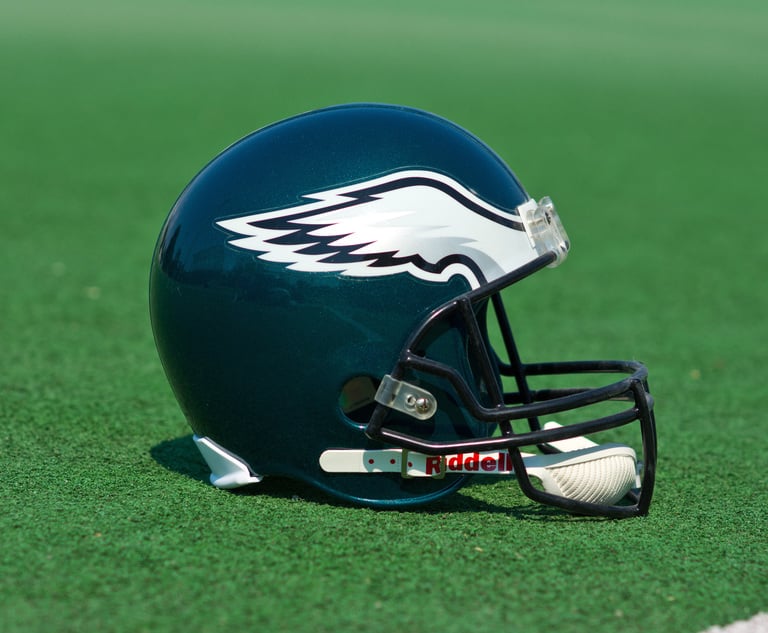Court Blocks Bid to Seal Hospital's Bad-Faith Claims Against Excess Carrier
Moses Taylor Hospital in Scranton, Pennsylvania, contended that its bad-faith lawsuit would expose parts of the settlement agreement that were meant to be confidential.
May 11, 2020 at 04:11 PM
5 minute read
 Photo: Doubletree Studio/Shutterstock.com
Photo: Doubletree Studio/Shutterstock.com
A Pennsylvania judge has rejected a hospital's efforts to seal a bad-faith lawsuit it filed against its excess insurance carrier, dismissing arguments that opening the record up to the public could reveal confidential details about settlement talks and valuation methods.
Lackawanna County Court of Common Pleas Judge Terrence Nealon on May 8 denied Moses Taylor Hospital's efforts to seal from the public all the records associated with the lawsuit it recently brought against its excess insurance carrier, Coverys, and the company's underwriter, ProSelect Insurance Co.
The spat between Moses Taylor and the excess carrier defendants stems from a medical malpractice lawsuit that settled for more than $19 million following an arbitration last spring, with the Moses Taylor defendants contributing a significant portion. Moses Taylor contended that its bad-faith lawsuit would expose parts of the settlement agreement that were meant to be confidential.
Nealon, however, determined that the court was not bound by the confidentiality agreement, and the hospital failed to give any justification that would overcome the courts' presumption of openness.
"The existence of a confidentiality agreement among the parties in the malpractice suit does not control the court's determination of whether sealing of the record in this case is appropriate under the circumstances," Nealon said. "The secrecy interests cited by the hospital and trust simply do not supersede the presumption in favor of open access to judicial records so as to justify court-sanctioned closure of the record."
According to Nealon, the underlying case brought claims against an OB-GYN, as well as Wilkes-Barre Hospital and Moses Taylor Hospital, which is self-insured through a foundation for its primary insurance coverage. The case involved a baby born with spastic cerebral palsy, and made allegations that the doctor failed to properly interpret fetal heart tracings, or promptly perform a Cesarean section.
That case resulted in an $11.5 million settlement with the doctor and Wilkes-Barre Hospital defendants, Nealon said. The Moses Taylor defendant soon after agreed to arbitrate the claims against them, with a binding high-low agreement between $2.5 million and $7.75 million. Nealon said the arbitrator ended up finding for the plaintiff, so Moses Taylor contributed the full $7.75 million ceiling on the agreement.
According to Moses Taylor Hospital, the parties agreed to keep the high-low and arbitration result confidential.
Nealon noted that Moses Taylor's foundation provided for $500,000 toward the settlement in primary coverage, the MCARE Fund provided $500,000 and Coverys provided the rest. However, according to Moses Taylor, the amount the excess carrier paid for the settlement was then deducted from the aggregate excess coverage available to the hospital through Coverys. Since three other lawsuits were also pending stemming from conduct during the same period, the dedication greatly increased the hospital's chances of having to pay for those lawsuits out-of-pocket, the facility claimed.
Moses Taylor sued, alleging the carrier's actions significantly depleted its available funds under its policies, and raising claims of breach of implied contractual duties of good faith and fair dealing, as well as statutory bad faith. Specifically, the hospital contended that, during arbitration, the plaintiff in the underlying medical malpractice case had offered to settle for less than the ceiling on the high-low, but the excess carrier refused the demand. The hospital further said the rep the carrier sent to the settlement talks and pretrial conference was unprepared to negotiate and didn't have the authority to negotiate. The hospital also contended that the rep's boss, who had the authority to negotiate, refused to appear for settlement talks until the court entered an order threatening contempt.
In seeking to seal the case, Moses Taylor contended that the complaint outlines the high-low, the settlement talks, the results of the case, and other aspects the parties had agreed to keep confidential.
Nealon, however, ultimately determined that many aspects of the case the hospital wanted to keep under wraps had already been outlined in the court record, including the settlement amount, which he said is on the case docket. The judge said the foundation also didn't cite any precedent supporting the notion that closing records is routine in bad-faith cases, and further said there is Pennsylvania Superior Court case law saying the public and medical community has an interest in "observing and learning from medical malpractice actions."
"The existence of an agreement among the parties to maintain confidentiality of the details of their settlement does not bind the court which must independently determine whether sealing of the record is indicated because an interest in secrecy trumps the common law presumption of openness," Nealon said.
Neither Michael Perry of O'Malley, Harris, Durkin & Perry, who represented the hospital, nor the excess carrier's attorney, Thomas Hurd of McElroy, Deutsch, Mulvaney & Carpenter, returned a call for comment.
This content has been archived. It is available through our partners, LexisNexis® and Bloomberg Law.
To view this content, please continue to their sites.
Not a Lexis Subscriber?
Subscribe Now
Not a Bloomberg Law Subscriber?
Subscribe Now
NOT FOR REPRINT
© 2025 ALM Global, LLC, All Rights Reserved. Request academic re-use from www.copyright.com. All other uses, submit a request to [email protected]. For more information visit Asset & Logo Licensing.
You Might Like
View All
Federal Trade Commission’s Updates to the Health Breach Notification Rule Now In Effect
7 minute read

Pa. Defense Firm Sued by Client Over Ex-Eagles Player's $43.5M Med Mal Win
3 minute read
Pa. High Court: Concrete Proof Not Needed to Weigh Grounds for Preliminary Injunction Order
4 minute readLaw Firms Mentioned
Trending Stories
- 1States Accuse Trump of Thwarting Court's Funding Restoration Order
- 2Microsoft Becomes Latest Tech Company to Face Claims of Stealing Marketing Commissions From Influencers
- 3Coral Gables Attorney Busted for Stalking Lawyer
- 4Trump's DOJ Delays Releasing Jan. 6 FBI Agents List Under Consent Order
- 5Securities Report Says That 2024 Settlements Passed a Total of $5.2B
Who Got The Work
J. Brugh Lower of Gibbons has entered an appearance for industrial equipment supplier Devco Corporation in a pending trademark infringement lawsuit. The suit, accusing the defendant of selling knock-off Graco products, was filed Dec. 18 in New Jersey District Court by Rivkin Radler on behalf of Graco Inc. and Graco Minnesota. The case, assigned to U.S. District Judge Zahid N. Quraishi, is 3:24-cv-11294, Graco Inc. et al v. Devco Corporation.
Who Got The Work
Rebecca Maller-Stein and Kent A. Yalowitz of Arnold & Porter Kaye Scholer have entered their appearances for Hanaco Venture Capital and its executives, Lior Prosor and David Frankel, in a pending securities lawsuit. The action, filed on Dec. 24 in New York Southern District Court by Zell, Aron & Co. on behalf of Goldeneye Advisors, accuses the defendants of negligently and fraudulently managing the plaintiff's $1 million investment. The case, assigned to U.S. District Judge Vernon S. Broderick, is 1:24-cv-09918, Goldeneye Advisors, LLC v. Hanaco Venture Capital, Ltd. et al.
Who Got The Work
Attorneys from A&O Shearman has stepped in as defense counsel for Toronto-Dominion Bank and other defendants in a pending securities class action. The suit, filed Dec. 11 in New York Southern District Court by Bleichmar Fonti & Auld, accuses the defendants of concealing the bank's 'pervasive' deficiencies in regards to its compliance with the Bank Secrecy Act and the quality of its anti-money laundering controls. The case, assigned to U.S. District Judge Arun Subramanian, is 1:24-cv-09445, Gonzalez v. The Toronto-Dominion Bank et al.
Who Got The Work
Crown Castle International, a Pennsylvania company providing shared communications infrastructure, has turned to Luke D. Wolf of Gordon Rees Scully Mansukhani to fend off a pending breach-of-contract lawsuit. The court action, filed Nov. 25 in Michigan Eastern District Court by Hooper Hathaway PC on behalf of The Town Residences LLC, accuses Crown Castle of failing to transfer approximately $30,000 in utility payments from T-Mobile in breach of a roof-top lease and assignment agreement. The case, assigned to U.S. District Judge Susan K. Declercq, is 2:24-cv-13131, The Town Residences LLC v. T-Mobile US, Inc. et al.
Who Got The Work
Wilfred P. Coronato and Daniel M. Schwartz of McCarter & English have stepped in as defense counsel to Electrolux Home Products Inc. in a pending product liability lawsuit. The court action, filed Nov. 26 in New York Eastern District Court by Poulos Lopiccolo PC and Nagel Rice LLP on behalf of David Stern, alleges that the defendant's refrigerators’ drawers and shelving repeatedly break and fall apart within months after purchase. The case, assigned to U.S. District Judge Joan M. Azrack, is 2:24-cv-08204, Stern v. Electrolux Home Products, Inc.
Featured Firms
Law Offices of Gary Martin Hays & Associates, P.C.
(470) 294-1674
Law Offices of Mark E. Salomone
(857) 444-6468
Smith & Hassler
(713) 739-1250





